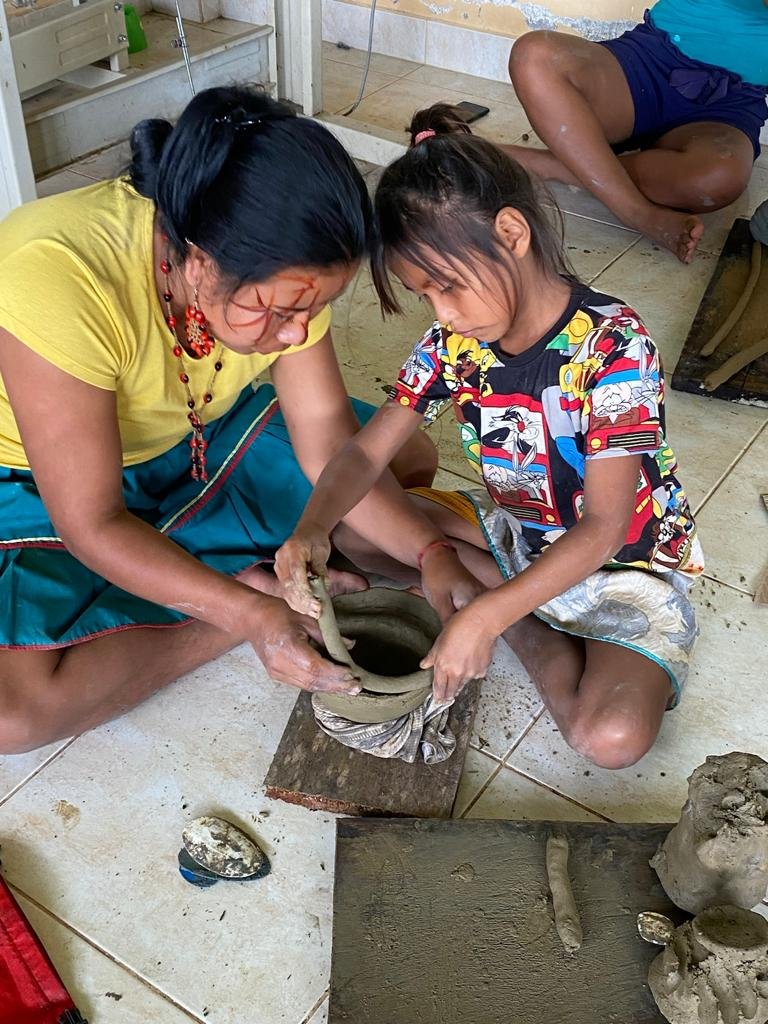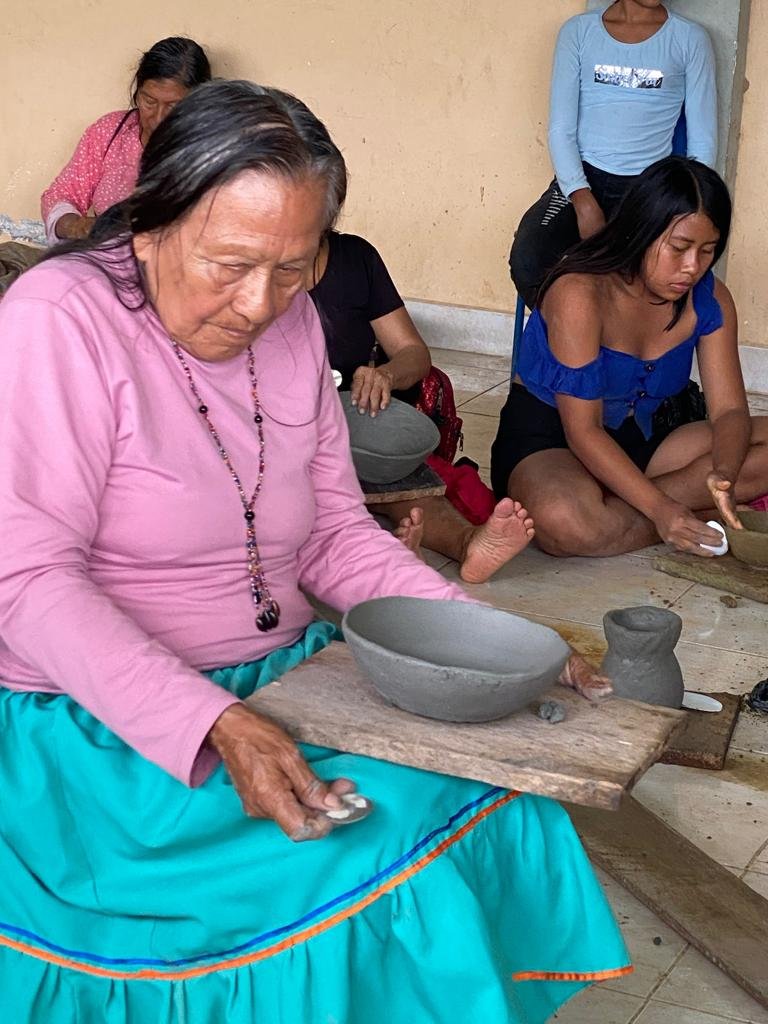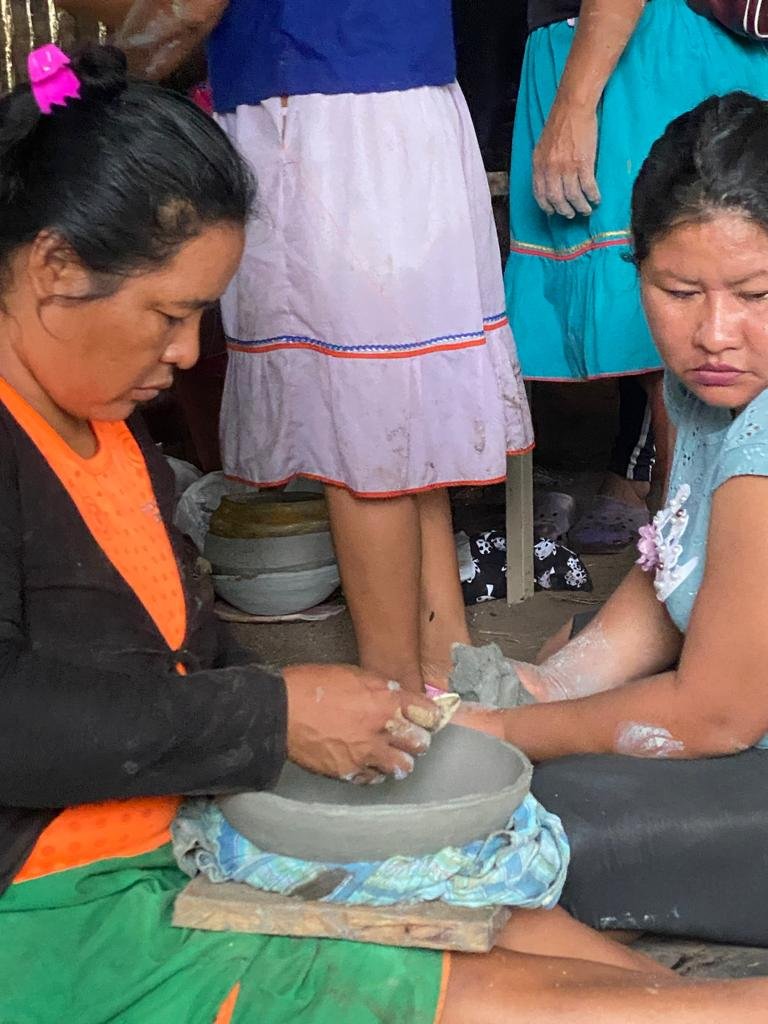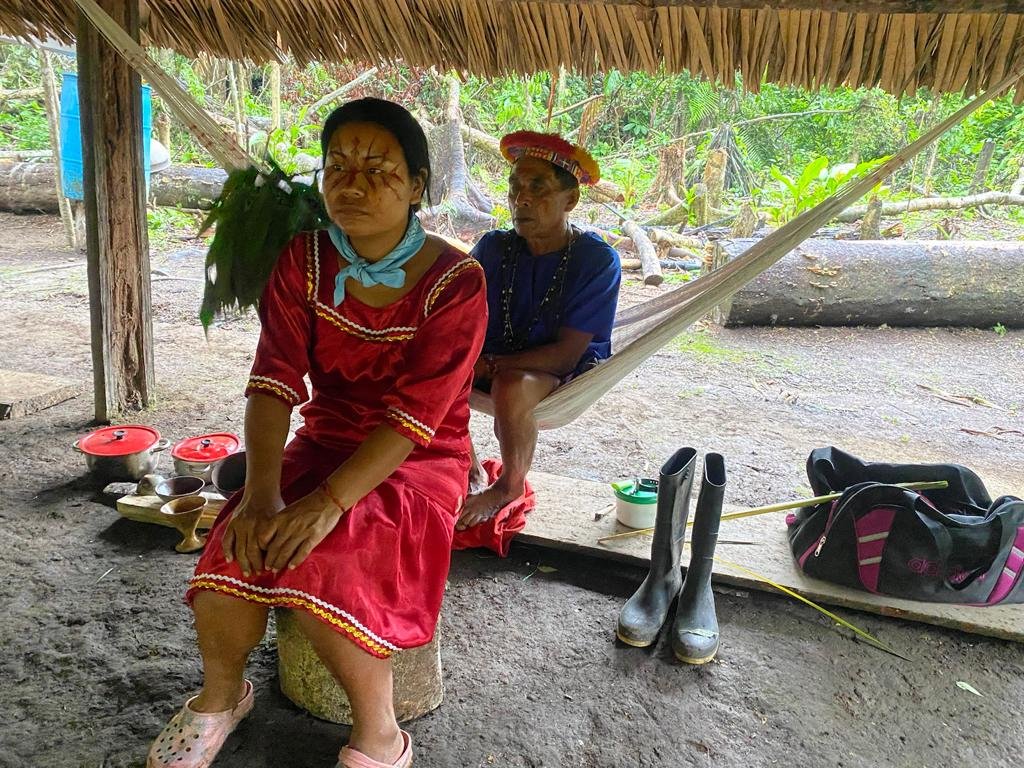
Encyclopedia
We are building an encyclopedia of Indigenous Wisdom using AI technology to share the value of Indigenous knowledge and practices.
We are creating a cutting-edge encyclopedia as a platform to celebrate and preserve Indigenous Wisdom. Powered by our advanced Machine Learning Technology, we are constructing a Living Library—an inclusive resource that enlightens people worldwide on the profound wisdom of Indigenous cultures.
Our first pilot project for our encyclopedia has been undertaken in collaboration with the Siekopai Nation in Ecuador, showcasing the captivating realm of Siekopai pottery, where photographs come to life as mesmerising holograms. These were on display at the prestigious Animal Ball in partnership with the Elephant Family.
Siekopai pottery, a form of traditional ceramics, holds profound healing significance and embodies a strong connection with the Earth. Crafted without molds, the Siekopai people rely on forest resources for materials. This enduring art form embraces the natural elements, shaping vessels that bridge the realms of healing and nature.
Photo courtesy of Yadira Ocoguaje of the Siekopai Nation
The Tintra Foundation partnered to present the Animal Ball at Lancaster House. The Tintra Foundation's work focusses on ethically documenting Indigenous Wisdom throughout the world using Artificial Intelligence. Our accelerated approach aims to preserve knowledge before climate change, conflict, colonisation, and industrialisation result in the loss of more valuable Indigenous Wisdom.
“It is absolutely critical that we turn to all that Indigenous Knowledge and Wisdom as the only way to restore the balance and harmony so badly needed in this world.” - His Majesty King Charles III



Photo courtesy of the Yadira Ocoguaje from the Siekopai Nation
The Siekopai Remolino community faces numerous threats to their physical and cultural survival due to various factors including:
-
The encroachment of oil exploration activities in their ancestral lands poses a significant threat. Exploration activities can lead to deforestation, habitat destruction, and contamination of natural resources, disrupting the delicate ecological balance on which the community depends.
-
The expansion of monoculture practices, such as large-scale agriculture focused on a single crop, can displace traditional farming methods and disrupt the community's sustainable livelihoods. This shift away from diversified agricultural practices can lead to a loss of Traditional Knowledge and threaten the community's food security.
-
Industrial and extractive activities, including oil drilling and mining, can result in the contamination of food and water sources. Pollutants, such as heavy metals or toxic chemicals, can enter the ecosystem, affecting aquatic life and subsequently the food and water resources on which the community relies. This contamination poses health risks and can disrupt traditional food systems and cultural practices.
-
The pressures of industrial development can erode the cultural heritage of the Siekopai Remolino community. The disruption to their traditional way of life, loss of access to sacred sites, and disconnection from their ancestral lands can impact their identity, language, rituals, and knowledge systems, endangering their cultural survival.

“All knowledge, history and legends have been passed down orally, from parents to children, up until today, through daily practices such as hunting, fishing, and building malokas. In our oral traditions, there are many important stories, about plants, animals, spirits. ”
— Jimmy Piaguaje, a young Indigenous Siekopai defender from Siekoya Remolin
The Original Storytellers.
We are providing compelling content of Indigenous Peoples’ stories of the existential threats they face and the solutions their way of life provides to our planetary crises.
